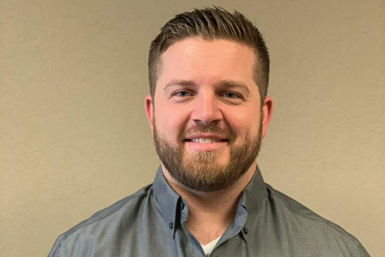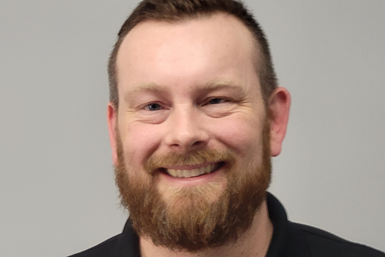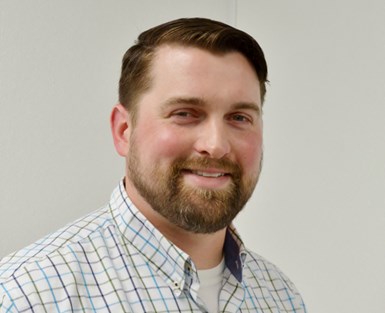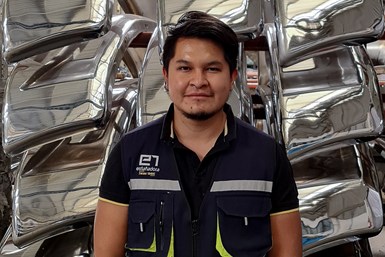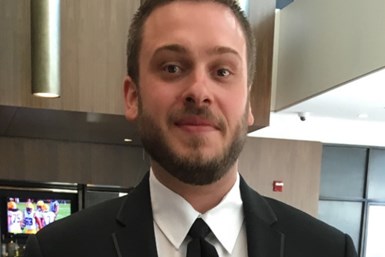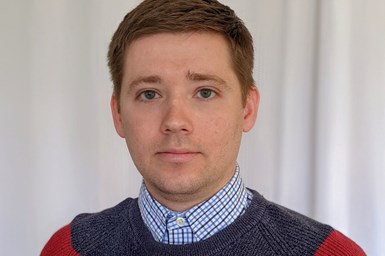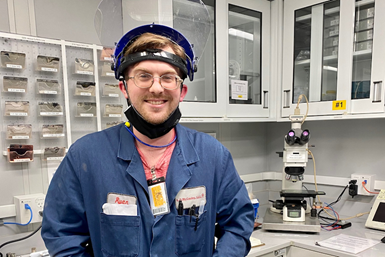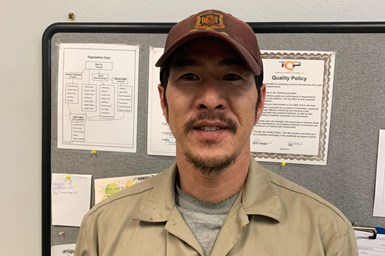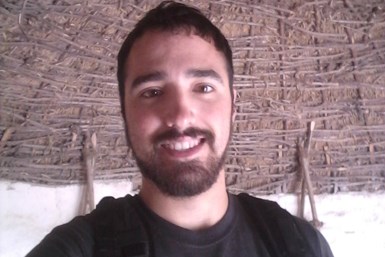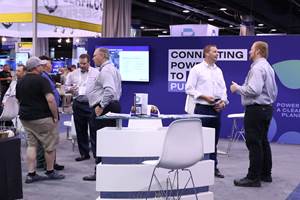Reinvigorating the Workforce
Do education and outreach hold the key to solving manufacturing’s workforce problem?
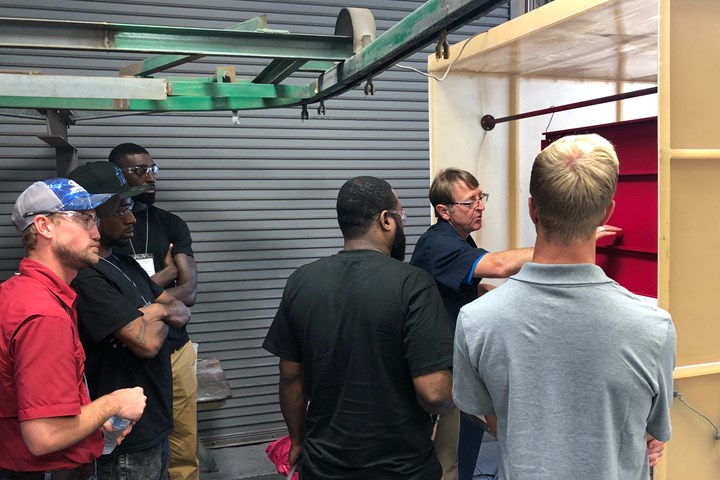
Finding the right people to continue to feed a skilled workforce has never been more challenging or more important.
Photo Credit: Chemical Coaters Association International
Finding and retaining skilled workers is a constant area of concern across all areas of manufacturing. Socio-economic hurdles contribute to making it hard to find good workers and keep them. Throw in the COVID-19 pandemic and things become all the more exacerbated. In addition, when you take into account the fact that the whole of manufacturing is evolving at an exponential pace through such advancements as artificial intelligence, robotics and smart technologies, you have a vastly changed employment landscape from just a few years ago. Gone are the days of simply filling a spot with a hired hand. In today’s manufacturing world, workers need to have the ambition and drive to acquire the necessary skills and knowledge. Retaining skilled workers is a whole other challenge.
Finding the right people to continue to feed a skilled workforce has never been more challenging or more important. Educational offerings, second chance programs and programs targeting diversity in manufacturing are helping to make a difference. Industry associations, educational companies and even finishing operations themselves are addressing the problem in several ways from scholarship programs to online training offerings.
Educational outreach
“The ‘skills gap’ in manufacturing is real,” says Kathie Mahoney, center director for Polaris MEP, a Rhode Island nonprofit organization committed to helping manufacturers improve their businesses. “Retiring workers have legacy machine tool and factory floor experience. Their in-depth knowledge of functionality, tendencies and problem-solving is irreplaceable. Younger workers frequently lack the technology-based skills required in today’s manufacturing. Companies need to think now about how to transfer that knowledge as best they can through on-the-job training programs and look at hiring people who are eager to work.”
Polaris MEP works in Rhode Island to support hands-on skills training programs for organizations working across a variety of manufacturing areas. Such companies are helping to make a difference through training opportunities not only for new hires, but also incumbent worker training programs.
Matt Kirchner, president of Lab Midwest, a distributor of e-learning and hands-on training equipment dedicated to furthering industrial education and workforce training, acknowledges the urgent workforce needs, but also points out the real opportunities that exist for an up and coming generation of workers.
“If you talk to any powder coating company, any contract manufacturer, any contract finishing company, any OEM, their biggest challenge is finding talent and finding individuals that can serve in positions and add value to their companies,” Kirchner says. “It's really too bad because there are just amazing career opportunities in the world of manufacturing and in the world of finishing.”
Lab Midwest is dedicated to helping find a new generation of talent by more young people interested in careers in manufacturing. The company works with educators at every level from universities and community colleges to K-12 STEM programs to employee training programs offered by employers. Kirchner explains that part of Lab Midwest’s mission is working to engage with underserved communities such as ex-offenders.
“Regardless of the reasons as those individuals are re-entering the community and re-entering the workforce, giving them skills that are valued by manufacturing, first of all, puts them on a great pathway, and second of all, lowers the rate of recidivism exponentially,” Kirchner says.
Second chances
Perfection Industrial Finishing (Tucson, AZ) is an exceptional example of this type of approach. The company started around 32 years ago as a small powder coating facility. Today, the operation has two facilities and has expanded into aerospace and military markets. To staff those facilities and to maintain the personnel needed to support the company’s growth, founder Chuck Zinke decided to try a new approach to cultivating its workforce.
“We had a really large contract come in, and we needed to staff up for it,” Zinke explains. “Unemployment was below 3% at the time. We were having a hard time finding good people wanting to work in manufacturing. It’s a really hands-on industry. We were looking at different pipelines and the Second Chance Coalition came up, and so we started doing some networking and research on that, and it opened up a huge pipeline to individuals who wanted to start over and work hard.”
The work with the Second Chance Coalition was spearheaded by Toni Guana, director of operations for Perfection Industrial Finishing.
“Our human resources team goes into the prisons and parole and probation offices and interviews people that are getting ready to enter the workforce,” Guana explains. “We help them to become successful members of society, give them an opportunity to move forward and do something different with their lives and impact the community in a positive way. We’re really proud to be a part of that.”
According to Guana, around 63% of Perfection Industrial Finishing’s workforce is from the second chance program and the company’s retention rate for these employees is high — around 65%. Guana says that giving individuals an opportunity to make a change in their lives can lead to a sense of loyalty and dedication.
“I love our team, they buy in to the quality,” she says. “They want to make continuous improvement and grow with the company.”
“They’re very loyal, hardworking employees — and that’s the benefit,” Zinke adds.
Help from friends in the industry
Workforce concerns are at the top of the list for industry associations. The National Association for Surface Finishing (NASF) devotes many of its resources to advocacy for regulatory policy concerns, but also to education and the spread of industry information. Each year the NASF hosts the SUR/FIN surface finishing industry conference and trade show. A track of the conference is devoted to CEF training and certification.
“We also have to find out if there is more need for education, both from a technical standpoint and from a business management and development standpoint,” says Jeff Brassard, president of NASF.
The association has been offering an online training program that provides an overview of critical finishing subjects.
Another industry association that is highly engaged in promoting educational efforts in the industry is the Chemical Coaters Association International (CCAI). In 2018, CCAI launched the CCAI Finishing Education Foundation (CCAIFEF) — a 501(c)(3) charitable non-profit — that has been ramping up efforts to provide financial support for programs that address both attraction of new talent and retention of skilled workers.
The CCAIFEF was established to advance CCAI’s mission to provide education and training programs that improve skills at all levels within the industrial finishing and coatings industry. CCAI’s scholarship programs that target high school seniors, technical school and college students enrolled in studies that can lead to a career in the finishing industry, are administered by the foundation.
In addition, the foundation is working to provide support for programs that cast a broader net and reach a diverse base to find the best talent. These programs include CCAI’s Women in Finishing program, consisting of professional development webinars and an in-person WiF Forum, a two-day networking and educational conference. A Tech Week program to be launched by CCAI this summer will engage high school students, including those in inner cities, to generate interest in finishing careers. And those looking to broaden their finishing expertise through a formal curriculum can take advantage of CCAI’s on-line courses beginning in July.
The foundation’s executive director Sheila LaMothe underlines that ongoing training is just as important as finding new talent. “It’s no secret that there is an ongoing and expansive need for skilled employees in our industry,” she says. “So, while it is important to attract new talent to the finishing and coatings industry, it’s just as important that we retain those that have already chosen a career in industrial finishing. Technology and market trends change continually and if you want to remain relevant in your role, advance your career, or try something new you need to keep abreast of what’s happening in the industry.”
Education for the future
Kirchner points out that 40 years ago the average industrial employee received roughly 100 hours of skills-based training each year provided by their employer. By and large, those kinds of training programs have dwindled away over the years, often replaced with a bare minimum of training in OSHA regulations.
But things are beginning to change. With advancements in manufacturing technology, the need for training is driving awareness of the importance of industrial education programs, for continued training and certification.
“We’re starting to see the perception of what a manufacturing job is, what a finishing job is, starting to change as advanced manufacturing technology continues to evolve,” Kirchner says.
Kirchner is also involved with the Smart Automation Certification Alliance (SACA), a non-profit devoted to helping individuals achieve Industry 4.0 certifications within a wide range of industries. Kirchner points out that the speed with which smart technologies are advancing and being adopted in all areas of manufacturing requires today’s workforce to engage in regular training in order to stay on top of the latest trends and technologies.
The past year has had its own effect on manufacturing’s workforce. From layoffs due to business disruption to shining a light on equal rights and diversity issues, the quest for finding and retaining skilled labor isn’t getting any easier. If anything remains true through it all, it’s that change is constant. Today’s workforce and the workforce of tomorrow should bank on that and employees and employers alike should look to education as an investment.
Related Content
Plasma Electrolytic Oxidation (PEO): A High-Performance Coating for Light Metal Alloys
Plasma Electrolytic Oxidation (PEO) offers an innovative approach to high-performance coatings for light metal alloys, providing superior alternatives to traditional hard anodizing. The process transforms the surface of metals like Al, Mg and Ti into a robust oxide layer with customizable properties, tailored for demanding applications in aerospace, semiconductor, and industrial manufacturing.
Read MoreNASF's SUR/FIN 2023: Bringing the Surface Finishing Industry Together
SUR/FIN 2023 is an opportunity for those in the surface finishing industry to expand their knowledge, expertise and network.
Read MoreTake Full Advantage of Industry Events
As travel plans ramp up for the year, what industry events will you attend? Products Finishing offers a quick look at some of the upcoming opportunities for 2024.
Read MoreSUR/FIN 2023: Capsules from the Technical Sessions I: Emerging Technologies
SUR/FIN 2023 in Cleveland this past June was a resounding success. Due to the efforts of the Technical Activities Committee, ably led by Bill Nebiolo this year, an outstanding program of technical presentations was offered. What follows are summaries of selected presentations from the Emerging Technologies sessions. Additional coverage will be provided in this space in the coming months. The full report can be accessed and printed at short.pfonline.com/NASF23Aug1.
Read MoreRead Next
Delivering Increased Benefits to Greenhouse Films
Baystar's Borstar technology is helping customers deliver better, more reliable production methods to greenhouse agriculture.
Read MoreEpisode 45: An Interview with Chandler Mancuso, MacDermid Envio Solutions
Chandler Mancuso, technical director with MacDermid Envio discusses updating your wastewater treatment system and implementing materials recycling solutions to increase efficiencies, control costs and reduce environmental impact.
Read MoreA ‘Clean’ Agenda Offers Unique Presentations in Chicago
The 2024 Parts Cleaning Conference, co-located with the International Manufacturing Technology Show, includes presentations by several speakers who are new to the conference and topics that have not been covered in past editions of this event.
Read More







